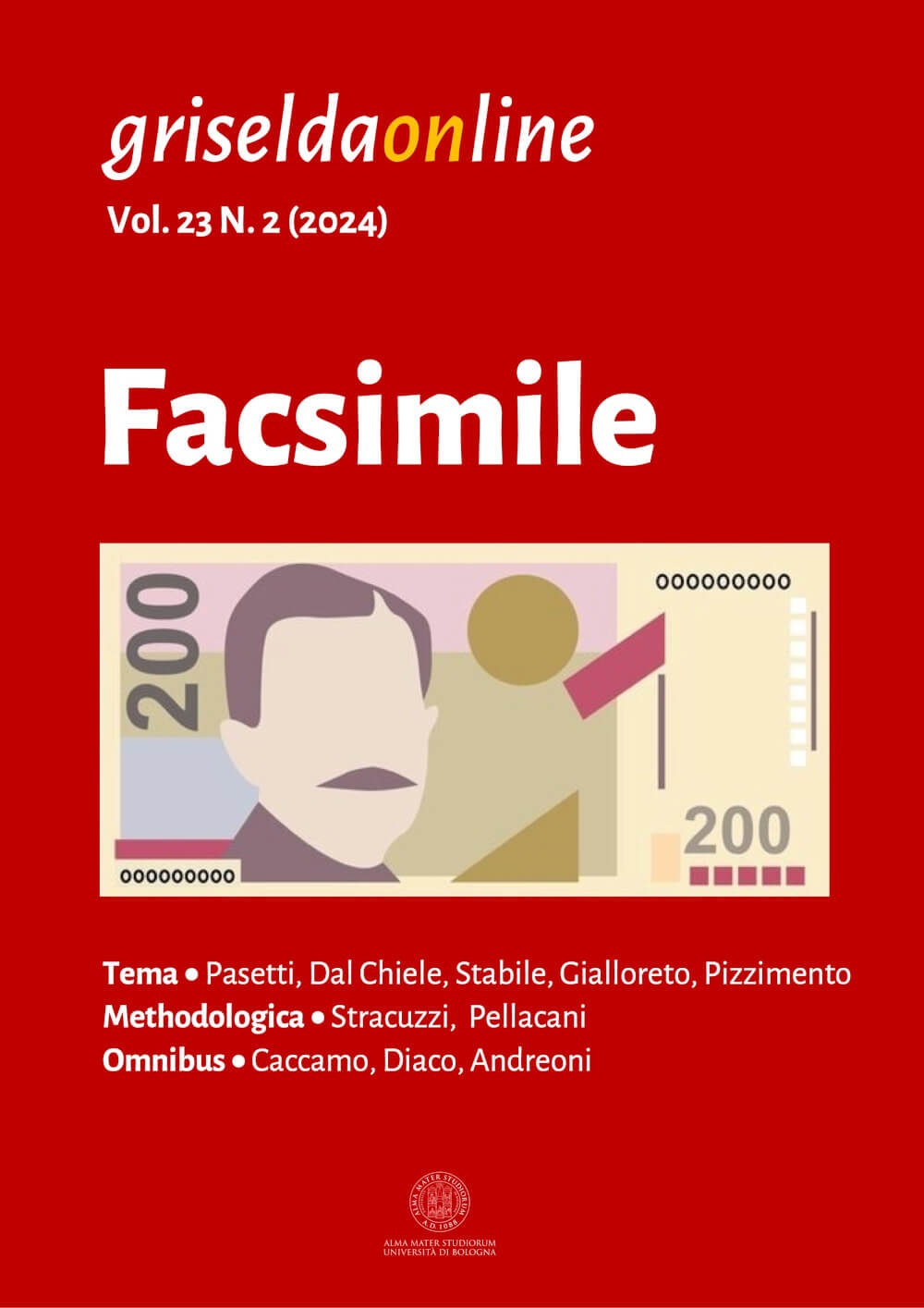«La storia non è poi la devastante ruspa che si dice»: l’‘Ungleichzeitigkeit’ nell’Italia del ‘boom’ economico
DOI:
https://doi.org/10.6092/issn.1721-4777/20262Keywords:
Industrial Literature, Olivetti, Ottiero Ottieri, Paolo Volponi, UngleichzeitigkeitAbstract
This article focuses on the relevance of the concept of Ungleichzeitigkeit to contemporary Italian literature: I suggest that the ‘contemporaneity of the non-contemporary’ perfectly describes Italy’s incomplete modernisation in the years of the economic boom. The old and the new, the countryside and the city coexist as distinct and contradictory worlds, although permeable and communicating. Olivetti’s milieu is immediately aware of this historical-anthropological complexity, as witnessed by Adriano’s attempts to mitigate the uprooting caused by mass urbanisation. Among the best observers of Italian Ungleichzeitigkeit it is worth mentioning Ottieri, who traces it both between different regions of the peninsula (La linea gotica) and within Milan (Tempi stretti). The spatial contiguity of different temporalities reaches paradigmatic evidence in Donnarumma all’assalto. Similarly, Volponi – whose position dialogues dialectically with Pasolini’s views – expresses the split between advanced industries and ‘an obscurely biological Italy’ (Calvino) in Memoriale (a true ‘novel without idyll’).
Downloads
Published
How to Cite
Issue
Section
License
Copyright (c) 2024 Francesco Diaco

This work is licensed under a Creative Commons Attribution-ShareAlike 4.0 International License.





